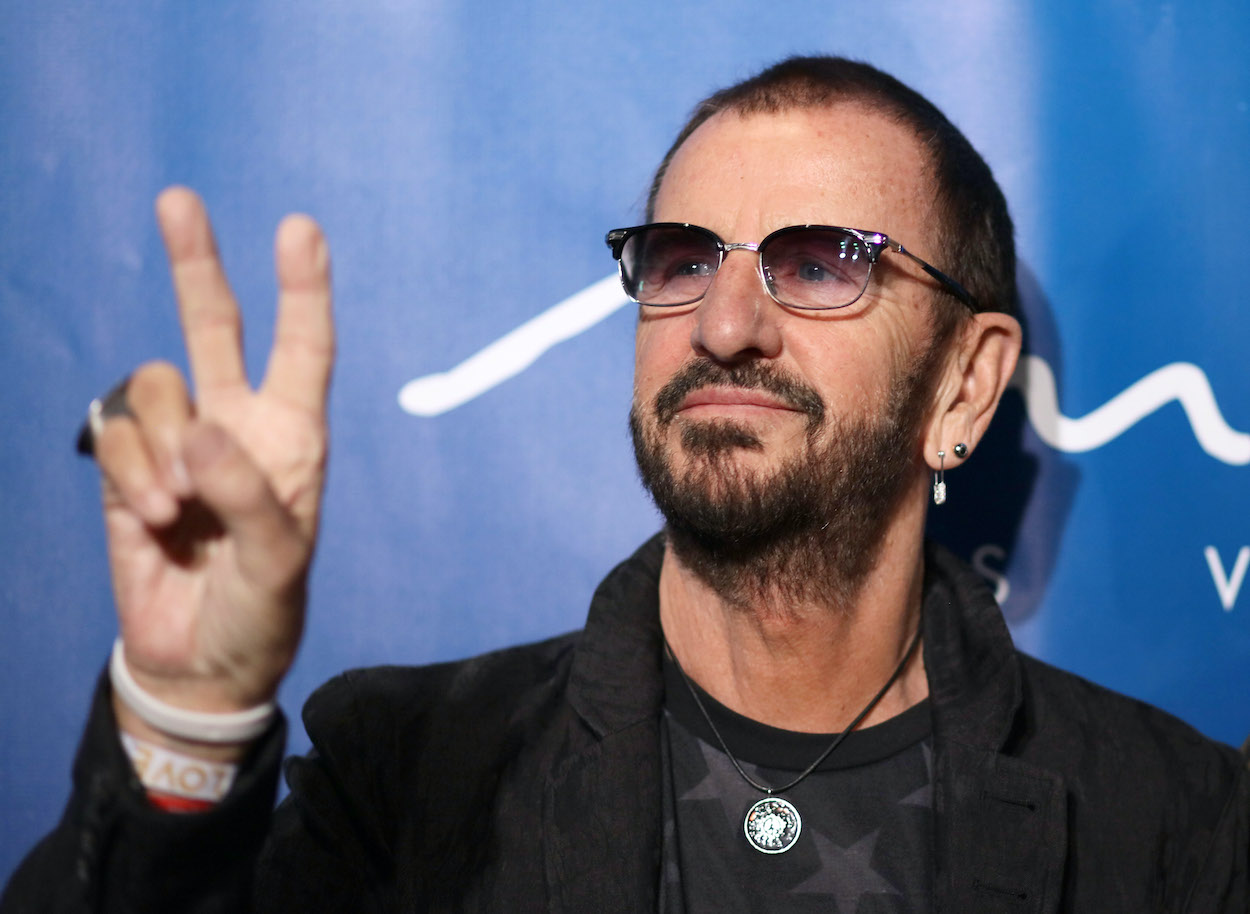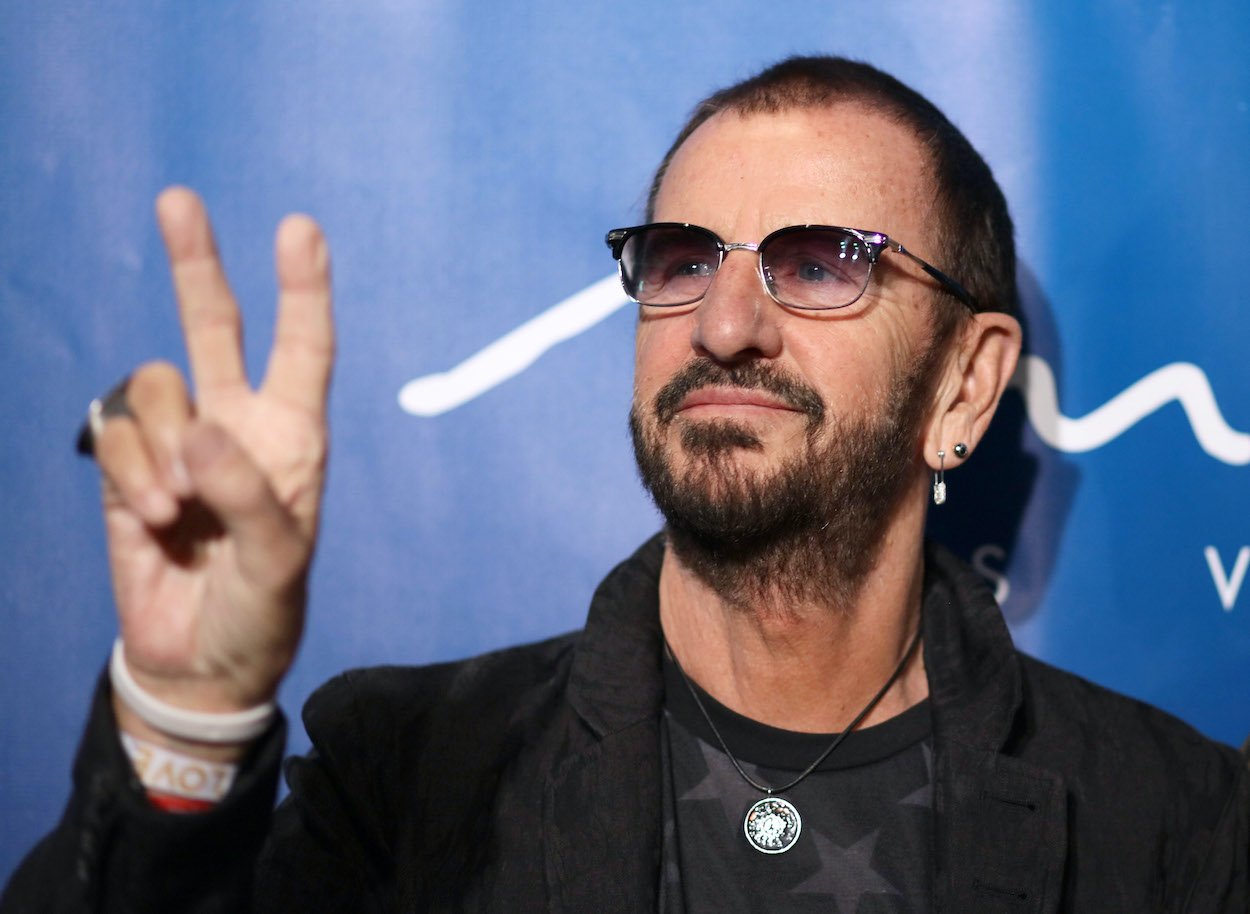
Ringo Starr’s ‘Little Voice’ Told Him the Truth About His Addiction After He Got Sober
Ringo Starr and The Beatles almost lived two lives. There was the forward-facing, squeaky-clean image most of the world saw. In private, they got high with Bob Dylan and experimented with other drugs. Ringo partied hard when the band broke up, and when he got sober, he realized his little voice had been telling him the truth about his addiction and behavior all along.

Ringo Starr descended into addiction in the 1970s after The Beatles broke up
Ringo released two solo albums in 1970 just as the Fab Four broke up. One hit shelves before the split and one came later, and the drummer released two other solo efforts by 1974.
At the same time, he spent more time with friends such as the hard-partying Harry Nilsson, The Who drummer Keith Moon, and T. Rex frontman Marc Bolan. In the mid-1970s, Ringo lived with Nilsson and John Lennon in his former bandmate’s rented house for a time. He often woke up hungover in the middle of the day wearing sunglasses and asking why the birds were coughing.
His excessive alcohol use wasn’t a secret, but Ringo’s friends didn’t push him to seek help. Linda McCartney once revealed she and Paul were afraid to talk to him about his drinking for fear of losing their friendship.
Fortunately for the drummer and his friends, he found sobriety in 1988. That’s when Ringo’s little voice told him the truth about his addiction.
Ringo Starr’s ‘little voice’ told him the truth about his addiction — he wasn’t as witty as he thought he was while drunk
Ringo had an aha moment and realized he needed help. Years of hard living had caught up to him. Doctors at the Arizona rehabilitation facility he attended told him drinking and drug use left him with liver damage and an enlarged heart, writes Michael Seth Starr (no relation) in the Ringo biography With a Little Help.
Once he moved past his addiction, Ringo’s little voice told him the truth about his behavior when he was drunk and high, Starr writes:
“You always think you’re witty on alcohol and cocaine. You think you’re so witty that you decide to tell the same story over and over and over and over and over again. To the same person. I meet people now, and I think, ‘God, was I like that?’ And a little voice inside says, ‘Yes, you were.’”
Ringo Starr reveals what his little voice told him after years of addiction
Ringo spent 20 years drinking excessively. He became accustomed to it; it was part of his lifestyle. The drummer surrounded himself with like-minded friends, some of whom (Moon) didn’t survive their addictions. Once he got sober, Ringo’s little voice spoke a bit louder. The message? His behavior when he overserved himself wasn’t as suave or witty as he thought it was at the time.
The drummer realized his addiction might have stemmed from his childhood
Ringo’s treatment also helped him realize his family history might have planted a seed that later grew into full-blown addiction, Starr writes.
“Until I got to the clinic I didn’t realize I was from a dysfunctional family,” Ringo said later. “We had parties, everyone gets drunk and passed out, and that’s part of life. My mother always told me that when I was nine, I was on my knees crawling drunk. A friend of mine’s father had all the booze ready for Christmas, and we decided to try all of it. I don’t remember too much. That was my first blackout.”
He grew up in a working-class Liverpool neighborhood, but Ringo never felt his childhood was an outsized struggle. He thought he had a good childhood until he talked to a therapist years later.
Ringo Starr lived a life of addiction for years. When he embraced sobriety, his little voice told him the truth about his behavior when he was addicted.
How to get help: In the U.S., contact the Substance Abuse and Mental Health Services Administration helpline at 1-800-662-4357.


